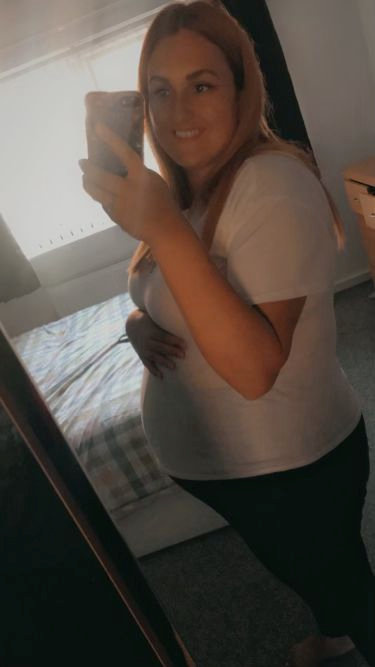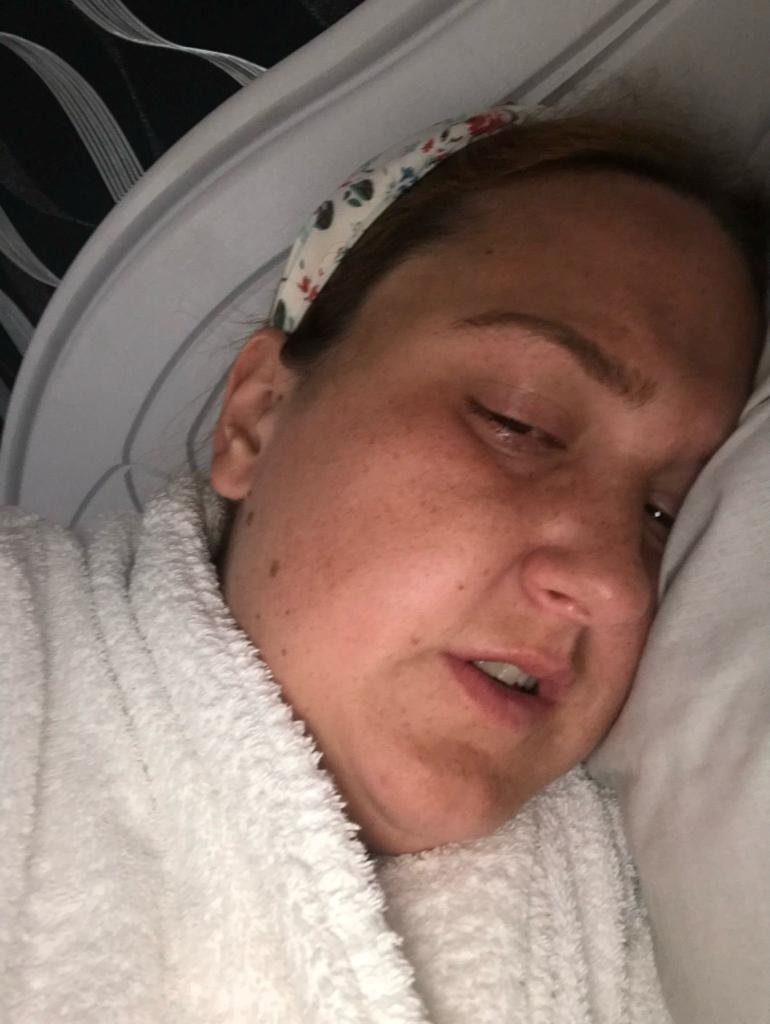My baby died in my arms — a simple screening could have saved her life
A UK woman is campaigning for women to be tested for sexually transmitted infections at the beginning of their pregnancies after her baby girl died in her arms because she was screened too late.
Kelly Redhead, 33, was excited to learn in June 2023 that she was pregnant with her third child.
But around 18 weeks into the pregnancy, the married Brit began experiencing sharp pains in her abdomen. She initially dismissed them as cramps but realized that the situation was more dire after a few days of continued pain.
Redhead checked herself into the hospital, where doctors collected some swabs and a urine sample, which concluded that she had a yeast infection — a common condition during early pregnancy.
The part-time chef said she didn’t feel ready to leave the hospital but was discharged by her doctors and sent home, where her problems worsened.
After discovering blood when she used the restroom, Redhead called the doctors again but was simply instructed to keep an eye on it and continue with her treatment and prescribed codeine.
“I woke up the next day and I couldn’t even stand up due to the pain,” Redhead told SWNS.
The sharp pains became more frequent and strong enough to make her physically sick, but when she went back to the hospital, Redhead said she was sent away.
After a few hours of pain and vomiting, she was finally directed to return to the hospital.
“I was debating taking an ambulance because I was so scared,” Redhead said as she recalled the terrifying drive back to the hospital.
“I could barely stand up, when I got there, a doctor came to say they needed to examine me to see if I was in labor,” she added.
A quick inspection showed that Redhead’s cervix was opening and her baby was going to be born early.
“I burst into tears, and I said my daughter can’t be born as she won’t survive,” she remembered.
Harper-Rose was born on Sept. 14, 2023, at just 18 weeks and three days, initially moving and breathing on her own — but she died 30 minutes later in her mom’s arms.
She weighed a measly 0.4 pounds.
“I held my daughter until she died,” Redhead said. “It was horrific. It is the worst experience of my life, and I wouldn’t wish it on anyone.”
A few days after the heartbreaking birth, Redhead received a call from her doctor sharing the results of the swabs taken when she first checked into the hospital.
Redhead tested positive for chlamydia and gonorrhea, which had developed into pelvic inflammatory disease.
“I dropped to the floor and just sobbed,” she said. “If I was tested early on in my pregnancy my daughter would still be alive today.”
After her diagnosis, Redhead had a debrief appointment with her consultant, who confirmed that her daughter would still be alive if Redhead had had an early screening for sexually transmitted infections.
“I asked him if Harper would still be here if I’d received a full STI screening early on, and he said, ‘Yes, they would have been able to treat the infections and she would still be with us,'” she explained.
The grieving mother has since launched an online petition to provide funding for STI screenings at the start of pregnancy — which is not common practice for all despite the high risks that STIs bring to pregnancy.
In the US, the Centers for Disease Control and Prevention recommends all pregnant women undergo prenatal screening for some infections (HIV, syphilis, hepatitis B, and hepatitis C). However, testing for others (chlamydia, gonorrhea, and TB) is recommended only for some women at risk for infection.
Newborn syphilis cases have “skyrocketed” in the US in the last decade as STIs have spiked across the country.
Under the current National Screening Committee guidelines, UK women are routinely tested for HIV, hepatitis B, and syphilis as early as possible in pregnancy — ideally by 10 weeks — but a full STI screening, which includes swabs for chlamydia and gonorrhea, is only offered to those under 25 or with self-reported risk factors, such as having multiple sex partners or an infected partner.
Others must request a full screening.
Redhead says she was not advised to be screened since she was older than 25 and married when she discovered she was pregnant.
“I want STI screening to be offered as part of routine testing at the beginning of a pregnancy,” Redhead said. “If I had been checked at the start of my pregnancy and the STIs were found, my daughter may still be with me today.”

















